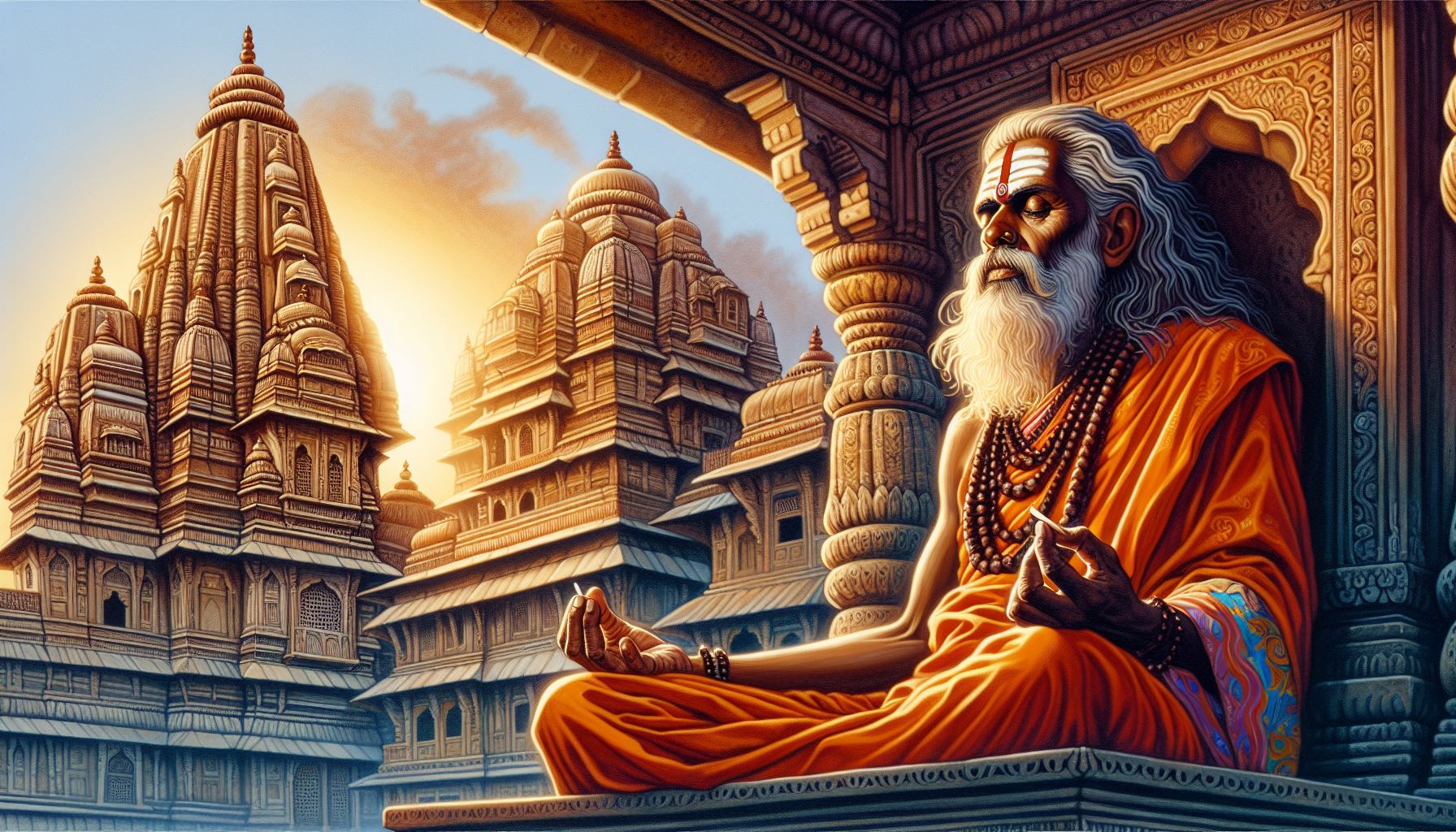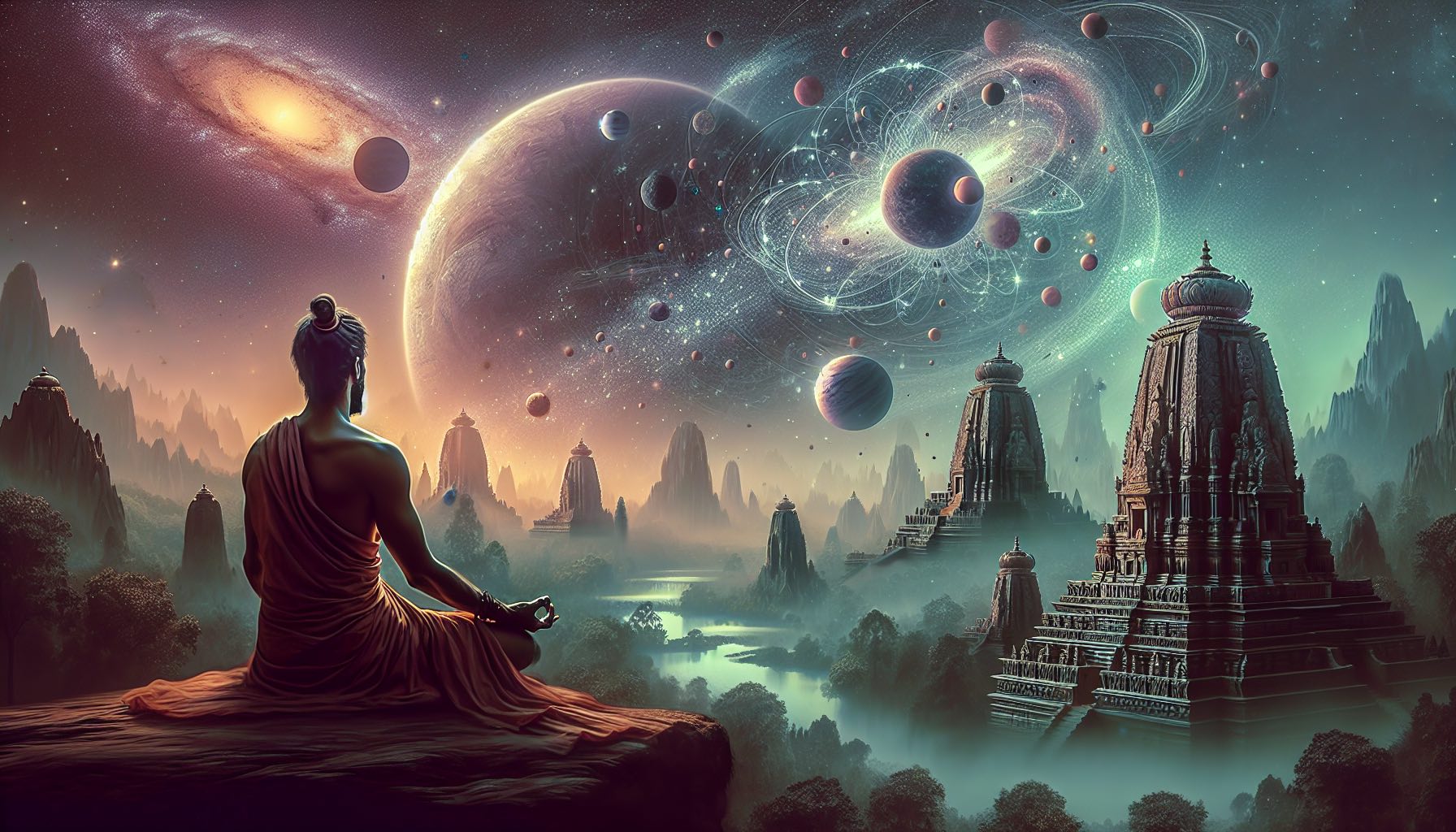BG 6.1 - 47
One who acts out of duty, without depending on the fruit of their actions, is truly renounced and a knower of Yoga - not one who merely shuns all action. Yoga is what they call renunciation. One cannot become spiritually enlightened without renouncing all desire. Practice is the only means of reaching the heights of spiritual meditation. When the sage has climbed these heights of Yoga, they maintain themselves there through tranquility and inaction. When one renounces attachment to sense objects and to actions, they have abandoned all desires and attained the heights of Yoga.

One should seek liberation by one's own mind, and not allow the mind to degrade. For the mind alone is the friend of the self, and the mind alone is its foe.
[5]To one who has conquered the self, the self is a friend, but to one who has not done so, it remains a hostile enemy.
[6]One who is self-controlled and has attained peace is equally unmoved by heat or cold, pleasure or pain, and in honor and dishonor.
[7]One who desires nothing but wisdom and spiritual realization, who has conquered the senses, and looks the same way upon a stone as a piece of gold, is a true saint.
[8]To excel, one must look impartially on all - friends, foes, enemies, the indifferent, hostile, virtuous, and sinful.
[9]
The yogi should constantly strive to control and concentrate the mind, living in seclusion, free from desire and possessions. Having chosen a sacred location, they should sit in a firm posture on a seat that is neither too high nor too low, covered in a grass mat, deer skin, and cloth. Seated thus, with a single-pointed mind, having control of the emotions and senses, one should practice meditation for the purification of the self. Holding the body, head, and neck motionless and steady, fix one's attention on the tip of the nose, without looking in any other direction. With serenity and courage, firm in the vow of celibacy, having controlled the mind, have me as the ultimate goal. By always keeping the mind balanced, one attains peace and everlasting liberation.
Meditation is not for one who eats too much, or does not eat at all. It is not for those who sleep too much, or stay awake too long. For those who regulate their food and recreation, who are temperate in their sleep and wakefulness, Yoga is the destroyer of unhappiness. When the mind is subdued and remains centered in the self, one attains freedom from cravings and desire. The yogi who has disciplined the mind and meditates diligently on the self is like a lamp in a windless place that does not flicker. When the mind, restrained through practice, becomes still, and when one finds satisfication in the inner self, when one knows that infinite happiness can be grasped by the intellect but is beyond the reach of the senses, one never strays from reality again. Having gained it, one realizes that there is nothing greater to gain. Once established in it, no calamity can disturb them.

This severance from the affliction of misery is called Yoga. It should be practiced with determination and a mind free from despondency.
[23]Renouncing all desires born of thought and imagination, completely restraining the senses from all sides,
[24]one should slowly withdraw oneself from objects other than the self, with an intellect held in strong determination. Fixing the mind in the self, one should not think of anything at all.
[25]Wherever the restless and unsteady mind wanders, one should subdue it and bring it back under control of the self alone.
[26]
Supreme happiness comes to the one whose mind is at peace, whose passions have subsides, and whose sins have dissolved. By concentrating the mind in this way, one easily attains the bliss that flows from contact with the eternal Brahman. One who has experienced Yoga sees their own self in all beings, and all beings in themselves, looking upon everything with equanimity. One who sees me in everything and everything in me, does not lose me, nor do I ever forsake them. The sage recognizes the unity of life and experiences me in all beings. They exist within me, no matter what their background or condition may be. The perfect saint, having been taught by the self within, sees the same self everywhere, regardless of whether they see pleasure or pain.
Arjuna said:
I do not see how I can attain this state of equanimity you speak of, due to the restlessness of my mind.
[33]The mind is fickle, impetuous, powerful, and stubborn - restraining it must be as difficult as controlling the wind.
[34]
Krishna replied:
The mind is indeed fickle and difficult to restrain, but it can be brought under control through practice and renunciation.
[35]It is not possible to attain self-realization without self-control, but it can be achieved by the proper technique and a subdued mind.
[36]
Arjuna asked:
What of the ones who fail to control themselves, whose minds fall from spiritual contemplation, yet retain their faith and do not attain perfection?
[37]Having failed in both, are they without hope, like a scattered cloud with no support, lost on the spiritual path?
[38]Please dispel this doubt of mine completely, for there is none other than you, Krishna, capable of doing so.
[39]
Krishna replied:
There is no destruction for such a person, either in this world or the next. No evil fate awaits those who tread the path of righteousness.
[40]Having reach the worlds where the righteous dwell, and having remained there for some time, one who has strayed from the path of spirituality is born again into the house of the pure and wealthy.
[41]Or such a person is born into a family of wise sages, though such a birth is very difficult to obtain.
[42]In that life, they are endowed with the wisdom acquired in the previous body, and strive more eagerly than before for perfection.
[43]Even unconsciously, they will return to their old practices. Even one who merely wishes to know about spiritual consciousness will transcend the sacred texts and rituals.
[44]
The student of spirituality, after many lives of earnest striving and absolution of sin, attains perfection and reaches the supreme state. Such a wise student is superior to the ascetic, the scholar, and to those of action - therefore, be a wise person, Arjuna! The best of these students is the one who is full of faith and has fixed their inner self upon me.


